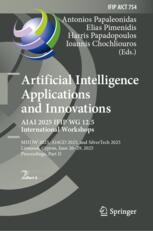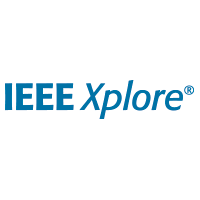AI Vision for Early Dementia Detection
What if we could reduce the 2-3 year delay in dementia diagnosis that costs families precious time for planning and early intervention? Currently, by the time cognitive tests catch dementia, patients have already lost significant cognitive function.

All Patient Innovation ideas follow the same five-point evaluation process outlined below. Research and additional documentation will be added below as this innovation matures.
1. The Problem Hook: "What if we could eliminate..." What if we could reduce the 2-3 year delay in dementia diagnosis that costs families precious time for planning and early intervention? Currently, by the time cognitive tests catch dementia, patients have already lost significant cognitive function. Families also suffer watching their loved ones struggle with undiagnosed confusion, and healthcare systems miss the critical window for effective interventions. I know this firsthand since my mother suffered from dementia that evaded her clinicians despite early warning signs. Unfortunately, by the time her official diagnosis was given, her cognitive functioning had dramatically reduced. Sadly, most of us have family members who have faced a similar scenario. Pain Score: 9/10 - Affects 55 million people worldwide with devastating family impact.
2. The AI Magic Question: "What if AI could see/predict/understand..." What if AI could detect subtle changes in eye movements, facial micro-expressions, and pupil responses during routine conversations that indicate dementia risk 2-5 years before traditional cognitive tests? Eye tracking patterns and facial expression changes are early biomarkers that humans can't reliably detect, but AI computer vision could identify these patterns from simple video interactions.
3. The Impact Test: "If this worked perfectly, who would be heroes?"
- Patients get: Early diagnosis leading to better treatment outcomes and more time for life planning
- Families get: Years of additional quality time and the ability to prepare emotionally and financially
- Doctors get: Objective screening tool that works during routine visits
- Cost savings: $50,000+ per patient through delayed institutionalization and better care planning
4. The Reality Check: "What's the simplest version that would still be amazing?" A tablet-based app that clinicians could use during routine primary care visits for those at the greatest risk for dementia or who are part of at-risk populations. While answering simple questions, the camera analyzes eye movements and facial responses. Takes 3 minutes, provides risk scores to physicians immediately. Start with 50 patients in one potential clinic that represents a higher-than-average diagnosis rate of dementia. Below are a few studies that highlight the scientific basis for this potential. Also, researchers at Stanford are already studying this application of computer vision.
5. The Excitement Factor: "Would people fight to get access to this?" YES! Families with a history of dementia would absolutely demand this screening. Primary care doctors would love an objective, first-line screening tool that doesn't require specialized training. This solves the "impossible" problem of catching dementia before it's obvious.
Research Documentation


Additional Research
https://www.sciencedirect.com/science/article/abs/pii/S0952197624020608?via%3Dihub
About the author
Dan Noyes brings a unique dual perspective as both a chronic healthcare patient and an innovation AI strategist, patient leader, and Founder of Viable Health AI. Dan's personal journey with chronic illness has ignited his mission to develop AI-powered emotional support systems and patient-centered healthcare solutions. Dan is also a strong supporter of data governance and bias detection mitigation.
Drawing from decades of understanding consumer needs and market dynamics, Dan now focuses on bridging the gap between cutting-edge AI technology and real patient experiences. He believes that the most impactful healthcare innovations come from those who live with the challenges on a daily basis. Through his work with the Center of Patient Innovation and Viable Health AI, Dan champions the development of AI solutions that address genuine patient needs rather than technology-seeking applications.
Dan's approach combines deep marketing insight with lived patient experience, creating a framework for healthcare AI innovation that prioritizes human connection, emotional support, and practical clinical solutions. His goal is to ensure that AI in healthcare serves both clinical outcomes (EHR/MHR), but also the complete patient journey.
"The best healthcare innovations don't just come from boardrooms, but from the doctors, nurses, bioinformatics teams, and patients."
You can reach Dan at (585)230-9565 or dan@viablehealthai.com

